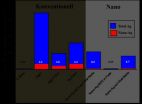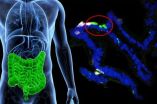(Press-News.org) The World Health Organisation has recommended an intervention developed and tested by partners in four countries and UCL researchers to improve maternal and newborn health. The intervention involves groups of women working together in a four-stage facilitated process: 1) Identifying problems during pregnancy, delivery, and post-partum; 2) Developing strategies to address these problems; 3) Implementing these strategies; and 4) Evaluating the strategies.
A meta-analysis of research into Participatory Women's Groups was conducted by Dr Audrey Prost and others, largely from UCL's Institute for Global Health, and appeared in The Lancet in May 2013. The researchers analysed data from seven cluster randomized controlled trials in Nepal, India, Bangladesh and Malawi. The analysis found that exposure to women's groups led to a 20 per cent reduction in neonatal mortality.
The researchers also found that in women's group initiatives that achieved high coverage – meaning that at least 30 per cent of pregnant women participated – there was a 49 per cent reduction in maternal mortality, and a 33 per cent reduction in neonatal mortality. With high coverage it was estimated that the deaths of 36,600 women and 283,000 children could be prevented.
In addition, the intervention was judged to be cost effective as measured by WHO standards, expressed as the incremental cost per neonatal death averted and life-year saved.
The World Health Organisation's global recommendation states that, "Implementation of community mobilization through facilitated participatory learning and action cycles with women's groups to improve maternal and newborn health is recommended, particularly in rural settings with low access to services". The WHO is set to disseminate the recommendation to its regional and country offices and key partners.
Dr Audrey Prost welcomed the WHO announcement:
"The WHO recommendation acknowledges that creating a forum for women to come together, discuss and address problems that matter for their health and that of their infants can actually save lives. This intervention should be scaled up in areas with the highest maternal and neonatal mortality rates."
The guidelines produced by the WHO state that the recommendation is "strong" for newborn health, meaning that the guideline development group (GDG) is confident that the desirable effects of adherence to the recommendation outweigh the undesirable effects. The GDG emphasized that the intervention can be seen as applying human rights and community participation principles, which are considered to be fundamental components of WHO maternal and newborn health strategies.
The recommendation will be made during the launch of the Every Newborn Action Plan in Johannesburg from 30th June – 1st July. "Every Newborn, an action plan to end preventable deaths", is a core group of partners led by UNICEF and the WHO which seeks to provide a roadmap to save 3 million lives of newborns, women and stillbirths each year.
Maternal and neonatal mortality rates remain high in many low-income and middle income countries, with an estimated 273,465 women dying from complications of pregnancy and childbirth each year. Newborn deaths now account for at least 44 per cent of all deaths among children under age five globally, resulting in 2.9 million deaths annually, according to the WHO.
INFORMATION:
Background: Participatory Women's Groups
Resources on Women's Groups can be found here: https://www.ucl.ac.uk/silva/igh/womens-groups
The systematic review and meta-analysis of Women's groups practicing participatory learning and action to improve maternal and newborn health in low resource settings, published in The Lancet, can be found online here: http://www.thelancet.com/journals/lancet/article/PIIS0140-6736(13)60685-6/abstract
Notes to editors The systematic review and meta-analysis was co-authored by Audrey Prost, Tim Colbourn, Nadine Seward, Kishwar Azad, Arri Coomarasamy, Andrew Copas, Tanja A J Houweling, Edward Fottrell, Abdul Kuddus, Sonia Lewycka, Christine MacArthur, Dharma Manandhar, Joanna Morrison, Charles Mwansambo, Nirmala Nair, Bejoy Nambiar, David Osrin, Christina Pagel, Tambosi Phiri, Anni-Maria Pulkki-BrännstrÖm, Mikey Rosato, Jolene Skordis-Worrall, Naomi Saville,Neena Shah More, Bhim Shrestha, Prasanta Tripathy, Amie Wilson, and Anthony Costello
For comment, please contact Dr Audrey Prost, Institute for Global Health, UCL. Email Audrey.Prost@ucl.ac.uk; or Professor Anthony Costello, Director, Institute for Global Health, UCL. Email A.Costello@ucl.ac.uk
Women's groups recommended by WHO as an intervention to cut newborn deaths
2014-06-30
ELSE PRESS RELEASES FROM THIS DATE:
Cocaine addiction: Phase-specific biology and treatment?
2014-06-30
Philadelphia, PA, June 30, 2014 – Current pharmacotherapies for addiction follow the dictum "one size fits all". Medications are prescribed in the same way for all patients, regardless of whether they have just started experimenting with a drug or have an established drug habit. Even more troubling, there are no FDA-approved pharmacotherapies for some addictions, such as compulsive cocaine use.
Perhaps testing drugs in ways that focus on particular phases of addiction or particular clinical features of addiction, such as a patient's level of impulsivity, might advance ...
Silver in the washing machine
2014-06-30
If it contains 'nano', it doesn't primarily leak 'nano': at least that's true for silver-coated textiles, explains Bernd Nowack of the Technology and Society division at Empa. During each wash cycle a certain amount of the silver coating is washed out of the textiles and ends up in the waste water. Empa analysed this water; it turned out that nano-coated textiles release hardly any nano-particles. That's quite the opposite to ordinary coatings, where a lot of different silver particles were found. Moreover, nano-coated silver textiles generally lose less silver during washing. ...
Gene variants found that increase pain sensation after common childhood surgery
2014-06-30
In the first genome-wide analysis of postsurgical pain in children, pediatric researchers identified variations in genes that affect a child's need for pain-control drugs. The findings suggest that at some point physicians may calibrate pain-medication dosages according to a child's individual genetic makeup.
"Although this research is only a first step for our team, it provides tremendous new insight into the biological mechanisms and brings us a little closer to personalizing medicine for pain control," said Scott D. Cook-Sather, M.D., a pediatric anesthesiologist at ...
It may take guts to cure diabetes
2014-06-30
New York, NY (June 30, 2014) — By switching off a single gene, scientists at Columbia University's Naomi Berrie Diabetes Center have converted human gastrointestinal cells into insulin-producing cells, demonstrating in principle that a drug could retrain cells inside a person's GI tract to produce insulin.
The new research was reported today in the online issue of the journal Nature Communications.
"People have been talking about turning one cell into another for a long time, but until now we hadn't gotten to the point of creating a fully functional insulin-producing ...
Newly identified gene provides reliable visual cue for oil palm fruit ripeness
2014-06-30
A genetic discovery by a team of scientists from the Malaysian Palm Oil Board (MPOB), aided by scientists from Orion Genomics, paves the way for increased production of palm oil, which accounts for 45 percent of the world's edible oil, while also helping to conserve sensitive wild habitats at risk of being turned into agricultural land.
In the study published in the journal Nature Communications, the scientists identified the VIR gene as responsible for fruit color. Currently, the majority of the oil palm fruit harvested in Malaysia and Indonesia is the nigrescens variety ...
No link between fertility drugs and breast, ovarian and uterine cancers
2014-06-30
Munich, 30 June 2014: There is "little evidence" that the use of conventional fertility hormones used for ovarian stimulation in the treatment of infertility increases the long-term risk of breast and gynecological cancers, according to the results of a substantial 30-year follow-up study. However, the extended use of clomiphene citrate was associated with a higher risk of breast cancer among women who had used the fertility drug for 12 cycles or more. Gonadotrophins, more commonly used for ovarian stimulation today, were not generally associated with any increased risk, ...
Children born to women after fertility treatment at greater risk of psychiatric disorders
2014-06-30
Munich, 30 June 2014: Children born to women with fertility problems have a higher risk of psychiatric disorders than naturally conceived children. The increase in risk was described as "modest" by researchers from Denmark, but was found to persist throughout childhood and into young adulthood.
The results, which are presented today at the 30th Annual Meeting of ESHRE in Munich by Dr Allan Jensen of the Danish Cancer Society Research Center at the University of Copenhagen, were derived from a register study of all children born in Denmark between 1969 and 2006.
From ...
Efficacy doubts over pre-IVF hysteroscopy
2014-06-30
Munich, 30 June 2014: A large multicentre trial seems finally to have resolved one of IVF's long-running controversies - whether the outlook for women with a poor IVF record can be improved by routine hysteroscopy performed before further IVF treatment.(1) For the TROPHY study, whose results are reported today at the 30th Annual Meeting of ESHRE in Munich by Dr Tarek El-Toukhy from Guy's and St Thomas's Hospital, London, has now found no significant difference in IVF success rates between those who had outpatient hysteroscopy performed before their IVF and those who didn't. ...
Study finds videoconferencing with family, friends lowers stress for pediatric patients
2014-06-30
(SACRAMENTO, Calif.) —To ease isolation during extended hospitalizations, UC Davis Children's Hospital offers secure videoconferencing for patients and families. While anecdotal accounts have suggested the Family-Link program enhances quality of life during long hospital stays, clinicians wondered if the technology also offered clinical benefits.
To answer that, a team led by UC Davis professor James Marcin studied 367 children who were hospitalized for at least four days. They found that access to Family-Link significantly reduced patient stress. The study was published ...
One-third of knee replacements classified as inappropriate
2014-06-30
New research reports that more than one third of total knee replacements in the U.S. were classified as "inappropriate" using a patient classification system developed and validated in Spain. The study, published in Arthritis & Rheumatology, a journal of the American College of Rheumatology (ACR), highlights the need for consensus on patient selection criteria among U.S. medical professionals treating those with the potential need of knee replacement surgery.
The Agency for Healthcare Research and Quality reports more than 600,000 knee replacements are performed in the ...




